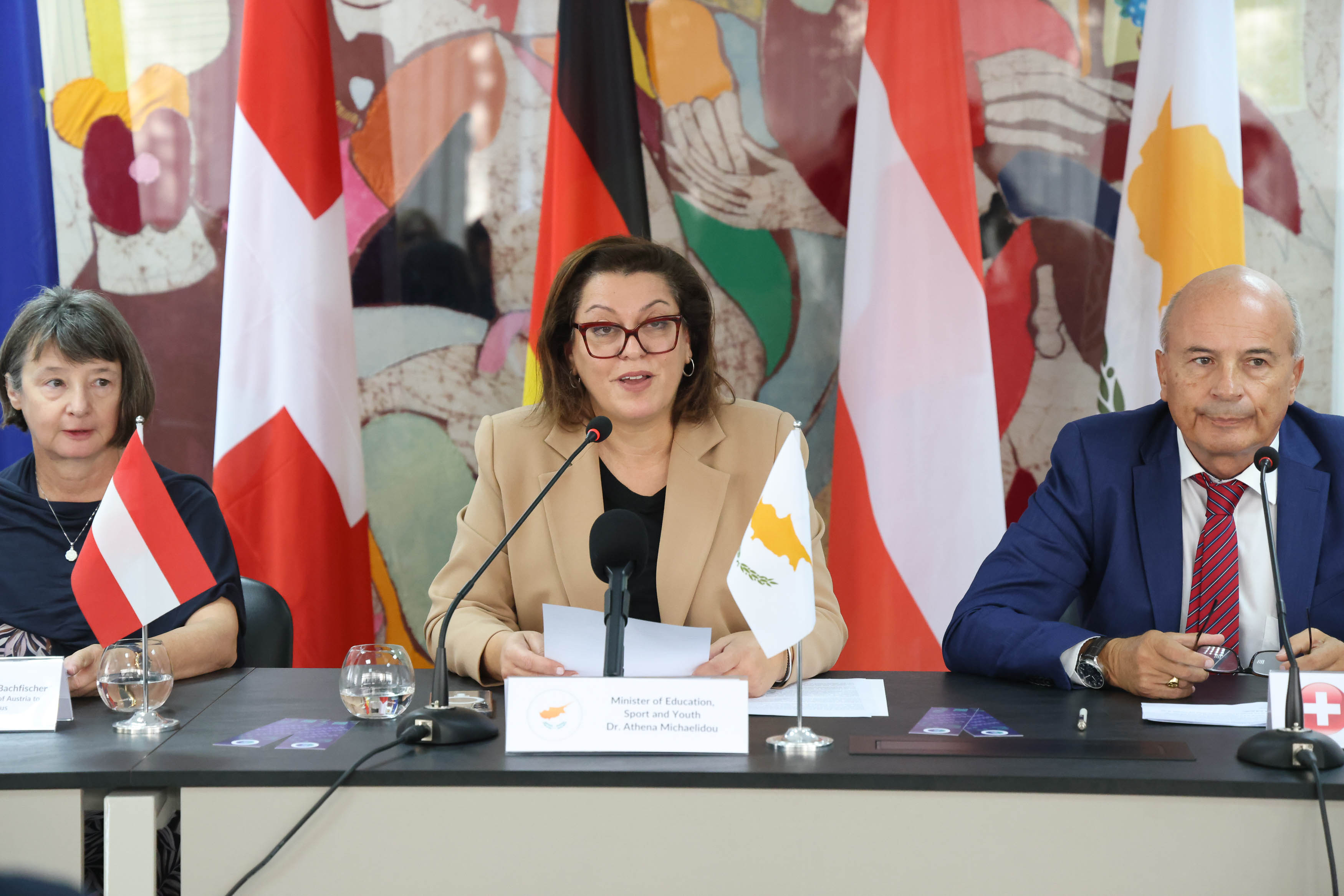Multilingualism remains a key pillar of our education policy, Education Minister Athena Michaelidou said on Thursday, expressing the ministry’s full support for the newly introduced annual German Language Weeks.
Michaelidou emphasised that language competence is vital within a modern, student-focused, and inclusive education system, describing it as essential for personal development, employability, active citizenship and social inclusion.
German, in particular, the minister added, as one of the European Union’s most widely spoken languages, plays a key role in science, culture, and economic exchange.
The annual events, running from November 10 to 29, invite students, teachers, families and the public to engage with German culture through literature readings, film screenings, discussions, music and culinary activities.
This year’s theme, “Stimmen & Geschichten” (Voices & Stories), highlights everyday narratives and diverse perspectives that have shaped society in both German-speaking countries and Cyprus.
Organisers – including the embassies of Austria, Germany and Switzerland, along with the Goethe-Institut – said the programme aims to foster dialogue, celebrate diversity and inspire reflection by spotlighting stories that transcend borders and generations, showcasing the richness of their cultures.
On November 12, students in the German language pilot programme will visit the Goethe-Institut in Nicosia for a special event organised for them.
Gymnasium students will also take part in an interactive workshop on German history and the fall of the Berlin Wall, while Lyceum students will visit the German embassy before heading to the institute.
“The challenge that lies ahead is the official certification of the German language competences acquired by our students,” Michaelidou said, announcing plans to strengthen cooperation with the Goethe-Institut to introduce recognised language proficiency certificates.






Click here to change your cookie preferences